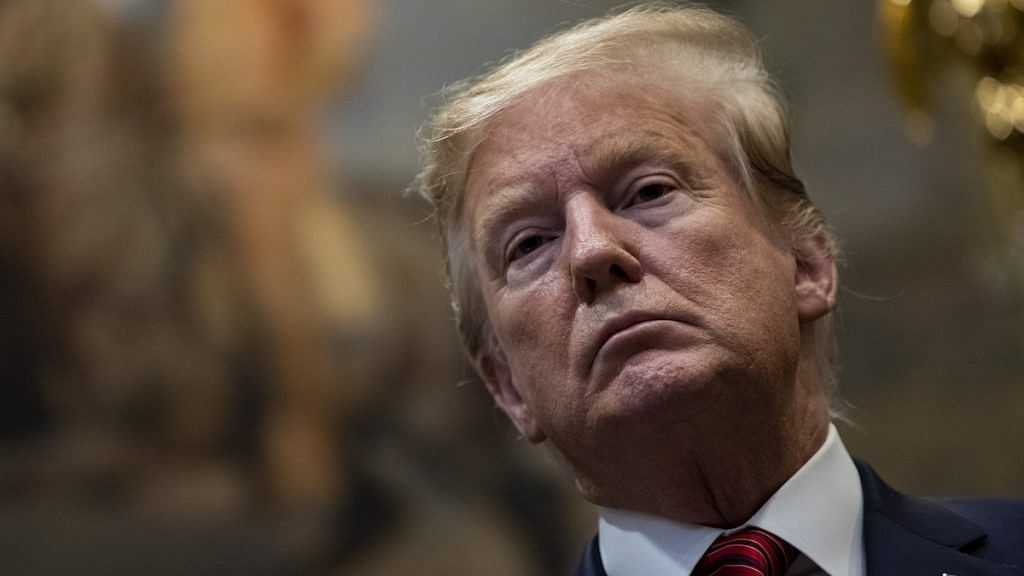Make no mistake: The U.S. decision to blacklist Chinese telecom giant Huawei Technologies Co. Ltd. will cause short-term economic pain. U.S. chipmakers such as Qualcomm have already announced they won’t be selling to Huawei until further notice. The Chinese government has threatened to retaliate, with a strong chance that it will limit or cut off U.S. exports of rare earth metals — key components used in everything from mobile phones to wind turbines. To quote my Bloomberg Opinion colleague Tim Culpan: The tech cold war has begun.
To which I can only say: It’s about time.
If this ban is just a bit of brinksmanship designed to pry a better trade deal out of Beijing, however, then it’s a blunder. The national security issues raised by Huawei’s technology transcend any trade dispute.
America’s spies and generals have long warned that Huawei is an arm of the People’s Liberation Army. Its routers and circuits are the equivalent of wiretaps for a powerful adversary. Last month, my Bloomberg News colleagues reported that Vodafone found these kinds of backdoors in Huawei equipment in 2011 and 2012, providing some of the first public verification to the warnings of the U.S. intelligence community.
That is the current danger from Huawei. Going forward, the threat is much greater: whether the U.S. and its allies will allow Huawei technology to be used in the 5G wireless network.
It’s important to understand that the next generation of wireless networks is about more than faster load times for your grumpy cat GIFs. 5G will be the backbone of the world economy. Everything from heart monitors to self-driving cars will rely on it. One U.S. national security official told me that China would be able to bring U.S. cities to a standstill “with the push of a button” if American cell towers were outfitted with Huawei equipment.
This is why Senate Minority Leader Chuck Schumer has asked the Commerce Department to review whether Chinese-designed cars planned for the New York City subway system pose a risk to national security. It’s why House Minority Leader Kevin McCarthy has come under scrutiny for removing language from a bipartisan spending bill to block Chinese firms from contracting with U.S. transportation authorities.
There is an argument that the U.S. can still block Huawei’s involvement in the 5G network without taking such a dramatic step as this blacklist. There are at least two responses. The first is that the campaign to get allies from adopting Huawei technology has stalled. The U.K. is widely expected to announce, for example, that it will allow some Huawei equipment to be used for its own 5G network, despite warnings from senior U.S. officials not to do so.
The second is that, sooner or later, this break had to happen. Huawei has been able to undercut the bids of its competitors in part because, about a decade ago, the China Development Bank extended it a $30 billion line of credit. Given Huawei’s relationship to the Chinese government, it was getting harder for Western companies to continue to participate in its supply chain without compromising their own intellectual property. Last week’s executive order catalyzes a process U.S. tech companies should have already been preparing for.
The key task now is for President Donald Trump and his administration to stick with the Huawei ban, no matter what happens in trade talks. Already two senators, Republican Tom Cotton of Arkansas and Democrat Chris Van Hollen of Maryland, are preparing a bill that would make the executive order U.S. law, according to Cotton’s office. A good next step would be to begin to lay out real consequences to America’s signal intelligence allies — known as the Five Eyes — if their governments allow Huawei into their 5G networks.
The tech cold war against China, like the original cold war against the Soviet Union, could last a long time. And like the first cold war, it will not always make American lives easier. Now as then, however, that cost is worth paying to contain a dangerous adversary. – Bloomberg.
Eli Lake is a Bloomberg Opinion columnist covering national security and foreign policy. He was the senior national security correspondent for the Daily Beast and covered national security and intelligence for the Washington Times, the New York Sun and UPI.
Also read: Donald Trump shouldn’t drag India into his trade war
